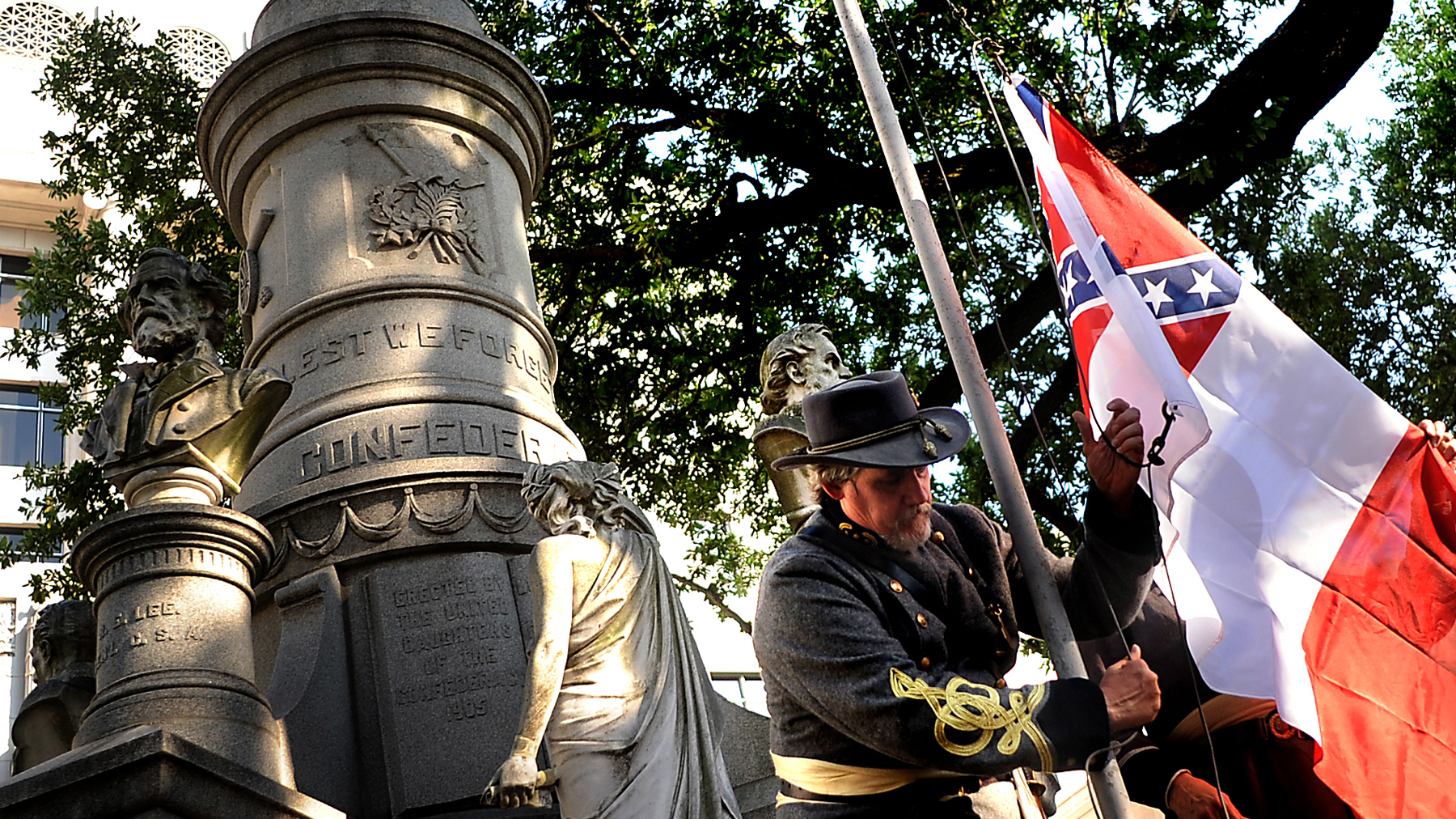Call it another loss for the Lost Cause.
A federal judge in Louisiana has upheld the Caddo Parish Commission’s decision to remove a monument to the Confederacy from the courthouse grounds.
U.S. District Judge Robert James concluded Monday that the United Daughters of the Confederacy owns the property on which the monument sits and has the authority to remove the statue.
The United Daughters filed suit after the parish commission in October ordered the monument’s removal. Removal of Confederate monuments has prompted conflict in many communities across the South.
The 30-foot-tall statue, which features a Confederate soldier above the words “Lest We Forget” and busts of Confederate generals Robert E. Lee, P.G.T. Beauregard, Thomas “Stonewall” Jackson and Henry Watkins Allen, went up and was dedicated in 1906, more than 40 years after the end of the Civil War. The statue was considered one of four major monuments to the Confederacy in Louisiana. The other three — statues of Confederate Gen. Robert E. Lee, Confederate President Jefferson Davis and Confederate Gen. P.G.T. Beauregard — were in New Orleans.
Those were taken down last year amid protest, lawsuits and controversy. Other cities have also seen monuments come down, most recently when protesters pulled down “Silent Sam,” a Confederate statue on the University of North Carolina campus in Chapel Hill.
Historical documents and accounts of the Louisiana monument’s dedication leave little doubt what was being commemorated outside the courthouse in Shreveport in northwest Louisiana.
“It was the sacrifices of their fathers, brothers, fiancées, and husbands in the war for Southern Secession that these women felt needed to be publicly remembered,” wrote Pam Breaux, a Louisiana state historic preservation officer, on an application to have the statue listed on the National Register of Historic Places.
At the dedication ceremony, Rev. W.T. Bolling told the assembled crowd the statue memorialized a group of soldiers who had earned the respect of their enemies and “left an eternal stream of military glory.”
“The men who went forth to battle under this banner were not actuated by hate, by desire for conquest, or to maintain the institution of slavery, but battled for what they believed to be a great fundamental doctrine, a foundation principle in a government founded upon the consent of the governed,” Bolling said.
In its lawsuit, the United Daughters alleged that it owned the land where the monument sat and that the parish commission lacked standing to remove the monument.
The organization also alleged that the parish commission, in ordering the monument’s removal, had violated the organization’s rights to free speech under the U.S. Constitution’s First Amendment, to due process under the Fifth Amendment and to equal treatment under the law in the 14th Amendment.
In response, parish lawyers asserted that Caddo Parish Police Jury action in 1903 providing land for the monument did not amount to a legal change of ownership.
The parish also asserted that it became the land’s legal owner because it has possessed it for 10 or 30 years, a legal approach that is permitted under some circumstances in Louisiana.
The Caddo Parish Police jury reserved land for the monument in 1903, according to news accounts and meeting minutes at the time. But no paperwork has turned up showing that the policy jury formally transferred ownership.
Who owned the land underneath the statue was at the center of the lawsuit, which the United Daughters of the Confederacy brought in 2017.
In his ruling, James said that the parish had the right to control, administer and manage the property. The dedication of the land for the monument did not give the United Daughters ownership of the plot, and the removal of the monument did not deprive the United Daughters of their constitutional rights, James wrote.
“The fact that the Parish Police Jury allowed Plaintiff to place a monument in front of the courthouse does not operate to deprive the public of its rights of use,” James wrote.
Associated Press photo



